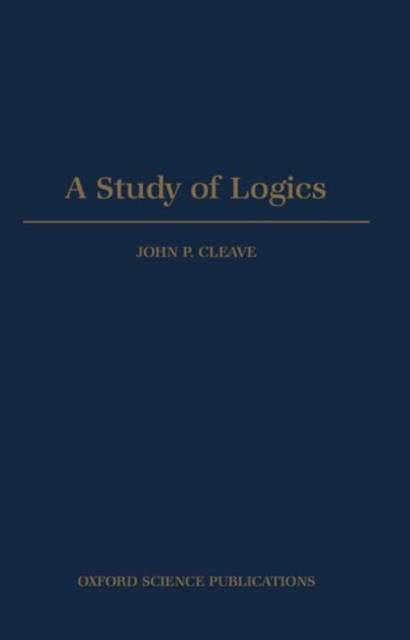
- Afhalen na 1 uur in een winkel met voorraad
- Gratis thuislevering in België vanaf € 30
- Ruim aanbod met 7 miljoen producten
- Afhalen na 1 uur in een winkel met voorraad
- Gratis thuislevering in België vanaf € 30
- Ruim aanbod met 7 miljoen producten
Zoeken
€ 394,95
+ 789 punten
Omschrijving
It is a fact of modern scientific thought that there is an enormous variety of logical systems - such as classical logic, intuitionist logic, temporal logic, and Hoare logic, to name but a few - which have originated in the areas of mathematical logic and computer science. In this book the author presents a systematic study of this rich harvest of logics via Tarski's well-known axiomatization of the notion of logical consequence. New and sometimes unorthodox treatments are given of the underlying principles and construction of many-valued logics, the logic of inexactness, effective logics, and modal logics. Throughout, numerous historical and philosophical remarks illuminate both the development of the subject and show the motivating influences behind its development. Those with a modest acquaintance of modern formal logic will find this to be a readable and not too technical account which will demonstrate the current diversity and profusion of logics. In particular, undergraduate and postgraduate students in mathematics, philosophy, computer science, and artificial intelligence will enjoy this introductory survey of the field.
Specificaties
Betrokkenen
- Auteur(s):
- Uitgeverij:
Inhoud
- Aantal bladzijden:
- 430
- Taal:
- Engels
- Reeks:
- Reeksnummer:
- nr. 18
Eigenschappen
- Productcode (EAN):
- 9780198532118
- Verschijningsdatum:
- 23/01/1992
- Uitvoering:
- Hardcover
- Formaat:
- Genaaid
- Afmetingen:
- 164 mm x 243 mm
- Gewicht:
- 861 g

Alleen bij Standaard Boekhandel
+ 789 punten op je klantenkaart van Standaard Boekhandel
Beoordelingen
We publiceren alleen reviews die voldoen aan de voorwaarden voor reviews. Bekijk onze voorwaarden voor reviews.











